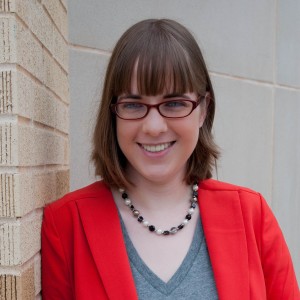
Medicines are required by law to warn the user about the risks involved when using them. Parents and students should know about the risks involved in participating in youth group.
No, I am not talking about the physical danger involved in playing dodgeball in a dark room after four cans of Mountain Dew and no sleep, or drinking strange concoctions mixed in a blender by the youth pastor. Parents should be warned that an unhealthy social environment for your child might be deadly for your child’s faith.
Youth group is not something that your child has to attend.
God doesn’t command it.
The Bible doesn’t require it.
Many people have flourished spiritually for centuries without it. Not only is youth group something that your child doesn’t have to attend, youth group could be detrimental to their spiritual health.
The concept of “youth group” where youth gather alone to do spiritual community and worship really started in the 1940’s with the Young Life movement, and was further developed by the Youth for Christ Movement in the 1950’s and 60’s. Since that time it appears to have become a necessity for most Western churches.
I was a youth pastor for over twelve years. I saw the spiritual lives of many teens change as they were introduced to Jesus, and accepted within our youth community. I am a believer in youth workers. If they are volunteers, then they are underpaid. They pour out their energy and lives in order to love and change the lives of teens. If they are employed staff, then they are under-paid. They do it because they believe in the Kingdom of God.
However for all their work and effort, youth workers can cannot control the spiritual outcome of their group on your child. I also believe that if they are honest, they will admit they have seen the negative affect that their ministry can have on adolescents.
1. Youth group could negatively affect your child’s faith because it is a peer-centered environment.
A peer-centered environment is a community that is built upon a similar age demographic. While some peer-centered environments may be structured and led by someone outside the age demographic (like youth group), this person cannot control the group. Peers set the standards and values, and control the ethos of the group. Our schools, sports teams, and churches are built around that concept that peer-centered communities are the best way to build community.
Some individuals thrive in communities based solely on their peers, while others merely survive. There are even some adolescents who when placed with peers simply shut down. During my adolescence, I was very involved in youth group, but it was not the peers that helped my faith stay alive as much as my connections with multiple generations. My grandfather, my Bible teachers, my co-workers, and my youth pastor and his wife were all instrumental in my discipleship process.
 While some adolescents perform well in peer-centered groups, this type of environment is not beneficial for all adolescents. Especially since many of these adolescents are balancing not just one of these groups, but several peer-centered groups at once (including school, youth group, sports teams). The emotional and social stress of fitting in with multiple social circles can be overwhelming.
While some adolescents perform well in peer-centered groups, this type of environment is not beneficial for all adolescents. Especially since many of these adolescents are balancing not just one of these groups, but several peer-centered groups at once (including school, youth group, sports teams). The emotional and social stress of fitting in with multiple social circles can be overwhelming.
2. A Child’s social development is tied with their faith development.
When attending youth group, your child’s faith development becomes tied to their social development within the group. If the experience is good, then it will often result in positive affects on their faith. However, a negative experience results in negative affects on their faith journey. Parents should have an understanding of how the social dynamics of youth group affects your child’s faith.
Even if a child has a positive social community at youth group, that stability could disappear overnight (due to a romantic break-up, or fight between friends, or a friend moving away). If your child’s entire spiritual influence is based solely on this community, then it could jeopardize their spiritual maturation. Being rejected by a church group can be perceived by an adolescent as being rejected by God.
Parents have often asked if they should make their child go to youth group, but there is not a simple answer to that question. Sometimes, parents wrongly view participation in youth group as the spiritual solution for a child’s struggles.
In order to avoid these issues, parents should make sure that their children have multiple sources of spiritual influences in their lives. Here are some questions to ask yourselves:
- Is your child apart of an inter-generational community at your church?
- Do they have spiritual aunts, uncles, grandmas and grandpas who can model faith, and encourage them in the midst of struggles?
- Does your child have a friend(s) their age who also claims faith in Christ?
- Is your child working with younger children within the church, displaying to them what it means to love others and follow Christ?
If you are seeing healthy spiritual development in your child, then there is no need to change. However, if you are unsure, and you don’t know why…then maybe it is time to reevaluate. Warning labels do not mean that no one should use them, but that there are risks of which parents should be aware.
The purpose of this article is not to destroy your faith in the church, but to call parents to reflect and examine how participation in a “Christian” youth group is affecting their child’s spiritual development.
Spiritual community is essential for healthy development, youth group is not.
 Dr. G. David Boyd is the Managing Director of EA Resources. He is the founder of the EA Network. If he can help you and your community ministry to the emerging adults in your community, please contact him at gdavid@earesources.org.
Dr. G. David Boyd is the Managing Director of EA Resources. He is the founder of the EA Network. If he can help you and your community ministry to the emerging adults in your community, please contact him at gdavid@earesources.org.












 Dr. G. David Boyd is the Founder and Managing Director of EA Resources. If he can help you and your community understand the needs and beliefs of emerging adults, please contact him at gdavid@earesources.org.
Dr. G. David Boyd is the Founder and Managing Director of EA Resources. If he can help you and your community understand the needs and beliefs of emerging adults, please contact him at gdavid@earesources.org.

 I find it amusing whenever a person starts talking about the “Right” or “Biblical” way to find a mate. If you look through the pages of the Bible, several methods of getting a mate might get you in trouble these days.
I find it amusing whenever a person starts talking about the “Right” or “Biblical” way to find a mate. If you look through the pages of the Bible, several methods of getting a mate might get you in trouble these days.  Earlier this week, I shared an
Earlier this week, I shared an  While some adolescents perform well in peer-centered groups, this type of environment is not beneficial for all adolescents. Especially since many of these adolescents are balancing not just one of these groups, but several peer-centered groups at once (including school, youth group, sports teams). The emotional and social stress of fitting in with multiple social circles can be overwhelming.
While some adolescents perform well in peer-centered groups, this type of environment is not beneficial for all adolescents. Especially since many of these adolescents are balancing not just one of these groups, but several peer-centered groups at once (including school, youth group, sports teams). The emotional and social stress of fitting in with multiple social circles can be overwhelming.